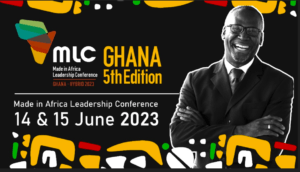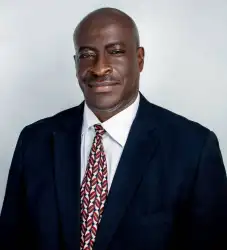The invention that had the greatest impact on Mother Earth in the past two centuries is the light bulb. With the successful invention of the light bulb, entire industries were created, living patterns and work patterns changed (people no longer had to go to bed at sundown anymore), productivity and living standards soured, and the world became a smaller and more accessible place.
Thomas Edison, an American inventor, failed repeatedly in his efforts to create many inventions…yet he never gave up. Edison toiled persistently on his vision, dealing with repeated (over 500) setbacks and obstacles that would have deterred most leaders.
Eventually, he invented the phonograph, the motion picture camera, and the light bulb. What if Edison had given up? What would the world look like today if he had decided, after his tenth, fiftieth, or one-hundredth disappointment, that “enough is enough; this thing will never work!” and had gone on to pursue something else or simply retired to a quiet life of frustration and disillusionment?
Helen Keili is a Sierra Leonean educational entrepreneur who was, in the early 1990s, a headmistress of a village school serving a mining town in Sierra Leone. Her school was visited by a school inspector from the Ministry of Education; after the inspection, the school inspector wrote a blisteringly-negative report about the school that brought Helen to tears when she read it. She spent days feeling depressed and could have easily gone into a comfortable vortex of blaming everyone for the negative report – including the school inspector (who hailed from a different tribe from Helen).
However, she decided to take a trip to the capital city, Freetown, to visit this school inspector and ask for clarity about the report and help to turn the school around. The inspector was surprised and pleased and gave Helen the information she needed to fix the issues that had been highlighted in the report.
Less than three years later, the RUF (Revolutionary United Front) rebels ransacked the mining village and Helen and her family escaped to Freetown with little else but the clothes on their backs. While in Freetown, Helen realized that her teachers and some students were also refugees in Freetown and after some encouragement from her teachers, decided to start a school. She was not sure how she could do it when she had no money and was herself a refugee.
She visited the school inspector again and to her surprise, when she shared her intention to start a school, the inspector helped with getting supplies and resources that she needed to start the school. Today, Modern High and Elementary Schools – the schools that Helen started in the mid 1990s – are two of the largest and fastest growing schools in Sierra Leone; they are extremely popular with middle-class parents looking for world-class-yet-affordable private school education for their children.
Dr. Amina Moghe-Hersi, a Somali-Ugandan entrepreneur, leveraged the assets from her hospitality business assets and her cement distribution business skills to bet big on the development of a sugar factory. In late 2019, she had purchased the machines and contracted an Indian firm to do the installation of the factory in 2020.
By February 2020, as international travel ground to a halt due to the Coronavirus crisis, it appeared that her timing was the worst ever; she had procured the machines and was heavily indebted to the banks but could not utilize the equipment because the installers were stuck in India. After an initial period of frustration and stagnation, Amina decided that the lack of physical presence of the Indian engineers was not enough reason to hinder the installation of the factory.
She hired young and smart Ugandan engineers, installed high speed internet at the factory to connect them audio-visually to the Indian engineers, and encouraged the Indian installers to train and supervise the Ugandan engineers as they installed the factory equipment with remote instructions. Amina inserted herself into the process, often spending days and nights at the factory participating in the learning and the installation process. The Attika Sugar Factory installation was completed in late 2020.
Dear African Leader, as you pursue your vision…as you journey from your current situation to the desired destination, the only things that you are guaranteed to experience are obstacles, disappointments, and setbacks. You may even suffer ridicule and betrayal. When these events happen, when it appears that the chips are stacked against you, remember that you are not unique and resist the temptation to blame the world for your situation.
Resist the temptation to look for the easiest scapegoat to cast blame on for your struggles. Resist the temptation to look anywhere else but yourself. You may choose to cry, vent, seek counseling, get coaching, and even pause to reflect; but you must remember that your victory, your vision, your success is on the other side of not giving up on your vision. When life gives you lemons, make lemonade out of them. Do not waste a setback.
Africa is full of them; however, inside those setbacks lay the diamonds that you need to chip through the rock to get to the treasure that is the vision accomplished. Thomas Edison once said that many of life’s failures are the people who did not realize how close they were to success when they gave up.
Helen Keili demonstrated that treasure can be hidden deep inside an apparent tragedy when she “mined” the tragedy of the negative report to turn a potential adversary into an ally. Amina Moghe-Hersi recognized that setbacks simply required innovative thinking and a pre-determined belief that “where there is a will, there is a way” and used this attitude to install a large sugar factory with rookie engineers and remote support. If these ordinary people can achieve such extraordinary feats with a mindset of turning lemons into lemonade, what could you do with a similar mindset?
Africa needs you to turn Africa’s lemons into lemonade. Don’t run away from Africa’s problems; embrace them. Inside the problems are the world-changing solutions that Africa’s children are yearning for you to solve so that you can create the jobs of tomorrow for them. Make it so.











